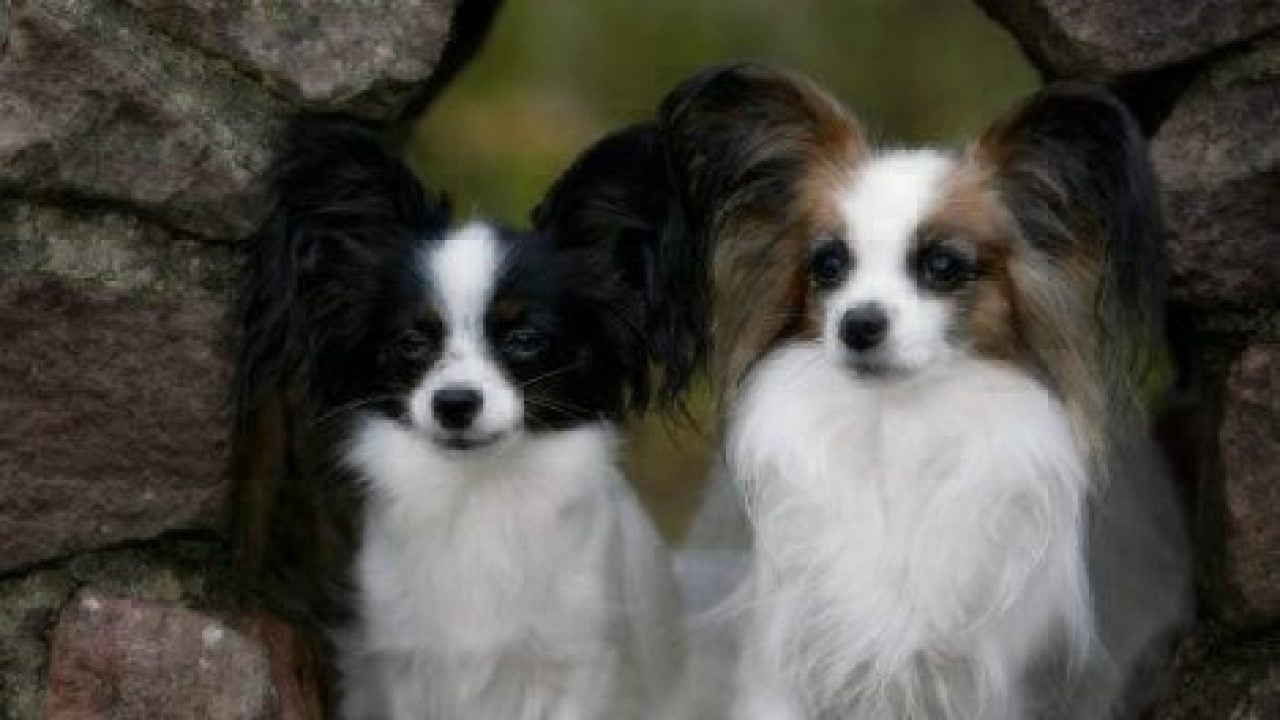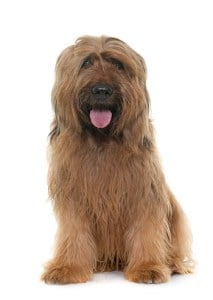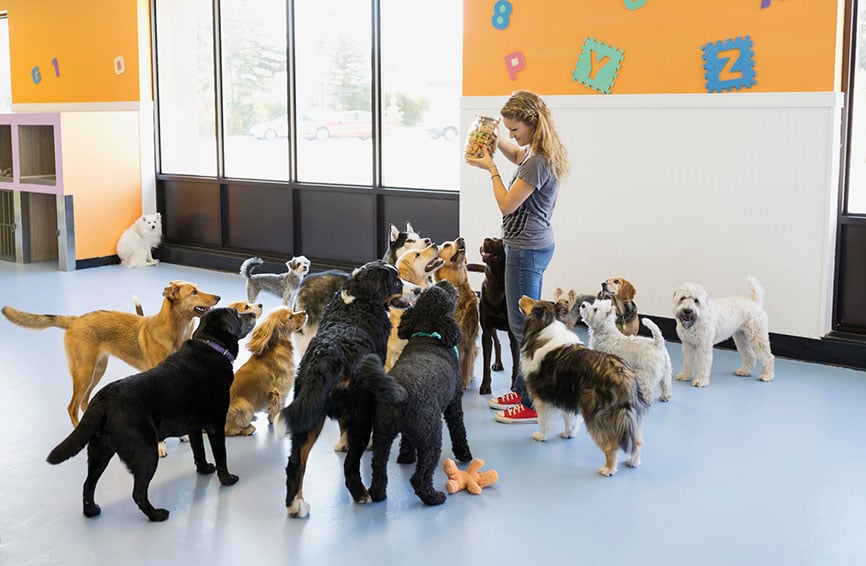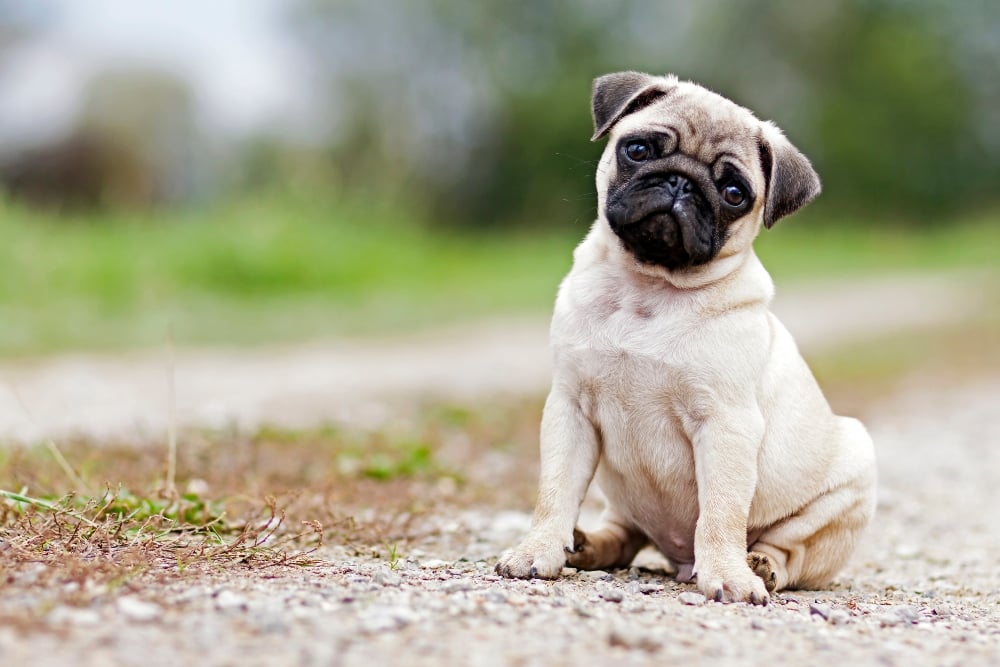Key Takeaways
- Bastille Day is a holiday on July 14 that celebrates the unification of the French people.
- There are unique dog breeds that are native to France.
- These breeds include the barbet, basset hound, and Beauceron.
- Well-known French breeds are the poodle and French bulldog.
Every 14th of July is Bastille Day; a day of remembrance for the storming of the Bastille and the unification of the French people. In honor of la Fête Nationale, we’re celebrating with 14 of the more unique dog breeds straight from France. So, while you might already be familiar with the Poodle, the French Bulldog, and the Bichon Frise, here are some incredible pups with a vast French history.
A rare breed, the name “barbet” comes from the French word “barbe,” meaning “beard.” The Barbet looks very similar to the poodle and the Portuguese water dog, and shares many of the same characteristics as well – intelligent, playful, with webbed feet and a water-resistant coat. History tells us that King Henry IV was a fan; he loved to go hunting with his pack of Barbets.
You may not have known that the Basset, also known as the iconic Hush Puppy, is one of six recognized Basset breeds in France. The Basset is a scent hound originally bred for hunting hare, and a descendant of the Bloodhound, who originated in Belgium.
The Petit Basset Griffon Vendéen is another Basset breed and the AKC puts it best: “Petit = small; Basset = low to the ground; Griffon = rough or wire coated; and Vendéen = the area of France from which he originated.” Both are tough, vivacious and generally happy dogs.
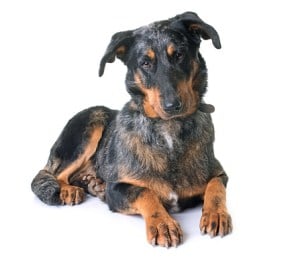
The Beauceron is a short-haired sheepdog, guard dog and herder from the plains of Northern France and is one of the breeds used to create the Doberman Pinscher. A hard working, versatile pup, the Beauceron has fought wolves, served in both world wars as a messenger, supply transporter, and search dog, not to mention the ongoing career as police dog. Definitely no slouch!
Let’s break it down: “berger” means shepherd and “Picardie” is the region of France where these herding dogs originated. Energetic, hard-working, and known for their very cute smile, Berger Picards are considered to be one of the oldest of the French Sheepdogs and once were reportedly used to smuggle tobacco, matches and even lace across European borders.
Another hunting breed, the Braque du Bourbonnais almost went completely extinct until its first breed club was founded in 1925, and then again in the 1960s simply due to lack of popularity. This dog is named after the region Bourbonnais and is one of the most “ancient pointer dogs in existence,” says the AKC. These dogs have a natural instinct to point and retrieve, are very intelligent, trainable and passionately loyal.
Napoleon was said to have been pet parent to not one but two Briards! The breed was named the official dog of the French Army around World War I — he or she would carry supplies to the front lines, find wounded soldiers, and transport ammunition. The Briard is very loyal and high energy, an ancient herding and guarding breed with an almost Muppet-like appearance.
Named for the Brittany region, the Brittany was called a “spaniel” until 1982, and is now recognized as a setter or pointer. They were bred expressly for bird hunting, and they excel at it to this day. High energy and fiercely loyal, these freckly pups are athletic and require a ton of exercise.
This large, loyal “big lug” may be familiar because Tom Hanks played alongside one in “Turner and Hooch” (1989). Called the “national guard dog of France,” the Dogue de Bordeaux is titled after the Bordeaux region where they were very popular and has faced a few close calls where the breed has almost gone completely extinct due to both world wars.
Fun fact: The French Spaniel and the Picardy Spaniel are considered to be the two oldest continental breeds of spaniel. The Blue Picardy Spaniel was bred between an English and Picardy Spaniel, and while a hunter, still makes a great family companion. The spaniels were a French nobility favorite – hunting was a “cool” sport at the time for royals, but continued in popularity even past the French Revolution, so these dogs were well-liked when all citizens enjoyed hunting.
With a German name (Löwchen means “little lion” auf Deutsch), this little pup is actually French, originating along the Mediterranean. Appearing in literature and art from the mid-15th century on, this breed lived in the lap of royal luxury. The Löwchen was once called “the rarest dog in the world:” in 1973 there were only 65 registered examples of the breed and even now, there are only a few hundred registrations each year.
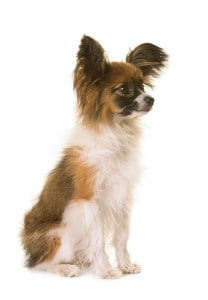
Papillons are small Spaniels who are very popular around the world for being beautiful and sweet lap dogs. They vary in personality, but most are spirited and athletic, sociable and very smart (they learn tricks very easily!). Named after the French word for butterfly, Papillons have long fur on their ears that look like a butterfly’s wings.
This elegant hound is both a fierce hunter and a loving companion, and is so named “Porcelaine” after its beautiful, shiny white coat. One of the oldest scent hounds, Porcelaine dogs were very popular in the 1700s and today are rather rare.
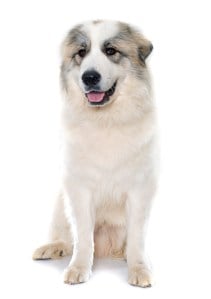
An official royal court dog in the 1700s, with masters such as Louis XIV and Marie Antoinette, the Pyrenean Mountain Dog is what we in the States call a “Great Pyrenees.” The Great Pyrenees were used for hundreds of years by shepherds, including those of the Basque people in the Pyrenees Mountains. They’re big – real big – but they’re also sweet working animals who still excel at guarding flocks of sheep.
Called a canine-workaholic, these shepherds are high-energy with a lot of intelligence! They’ve been around since medieval times and are considered to be one of the most beloved dog breeds in French history. They work alongside the Great Pyrenees tending to flocks of sheep; they’re the quintessential “big things in small packages” type of dog. They are hard to tire out and will make up work if they’re bored – the breed has been known to follow their pet parents around to help with daily chores!
At Healthy Paws, the plan covers all breeds! Whether you’ve got a lovable mutt or the rarest type of pup on the planet, the Healthy Paws plan will cover up to 90% of vet bills should the unexpected happen. Find out more by first getting a free quote.
